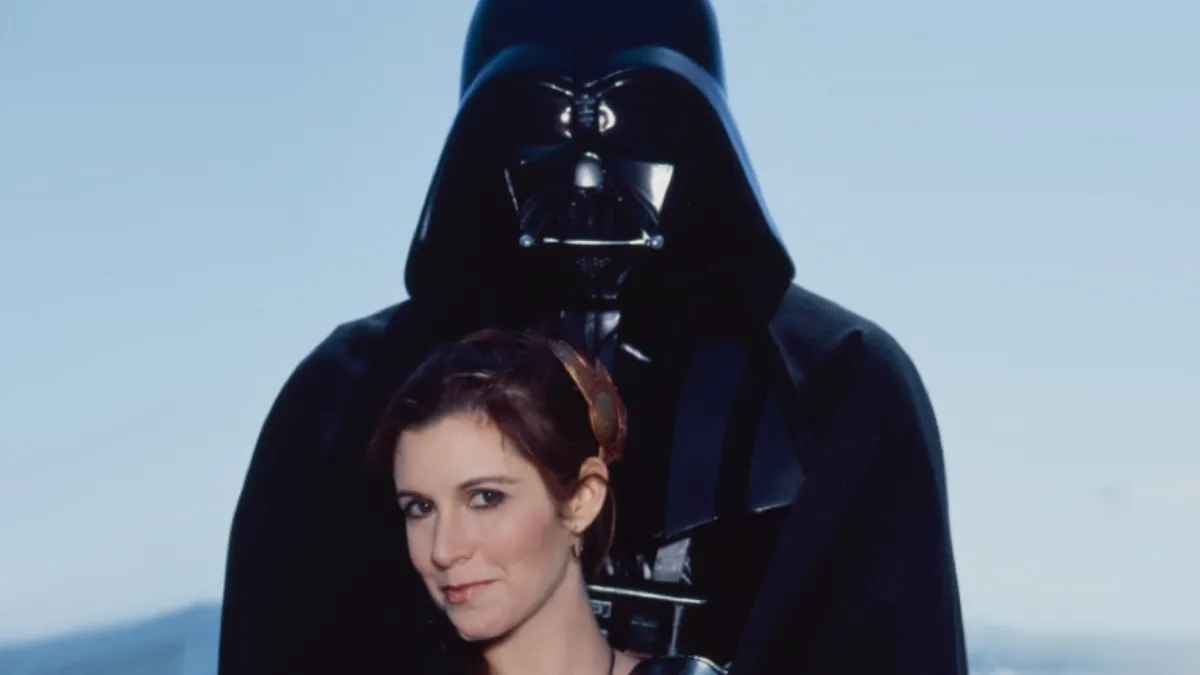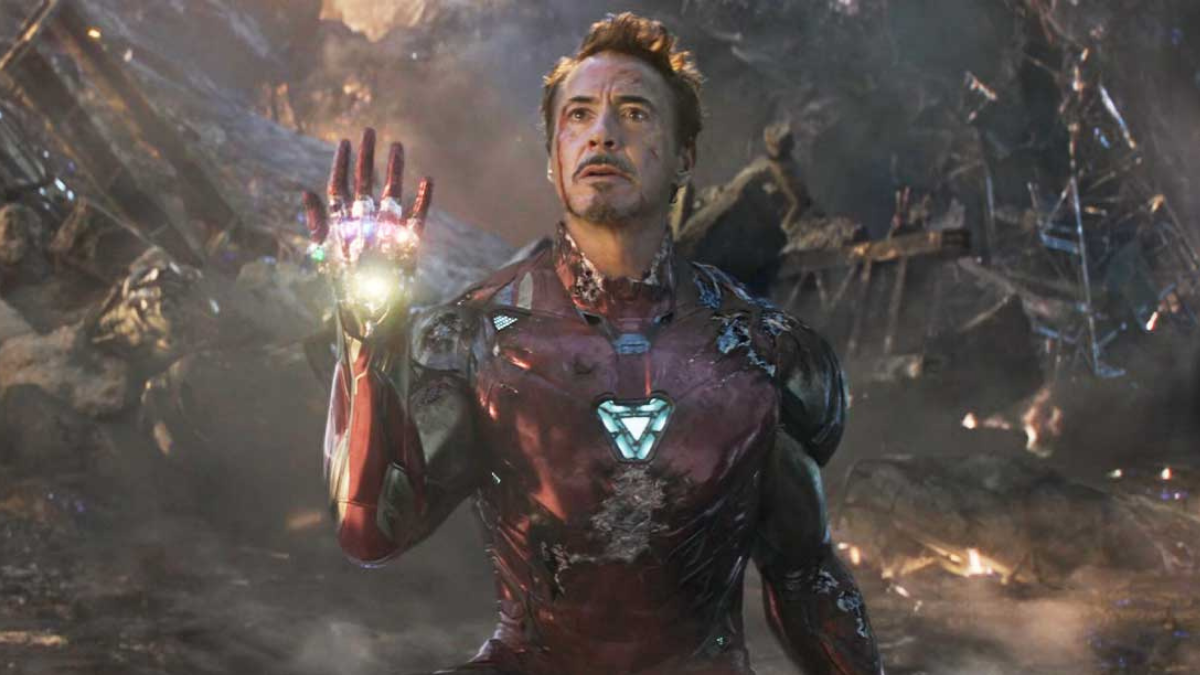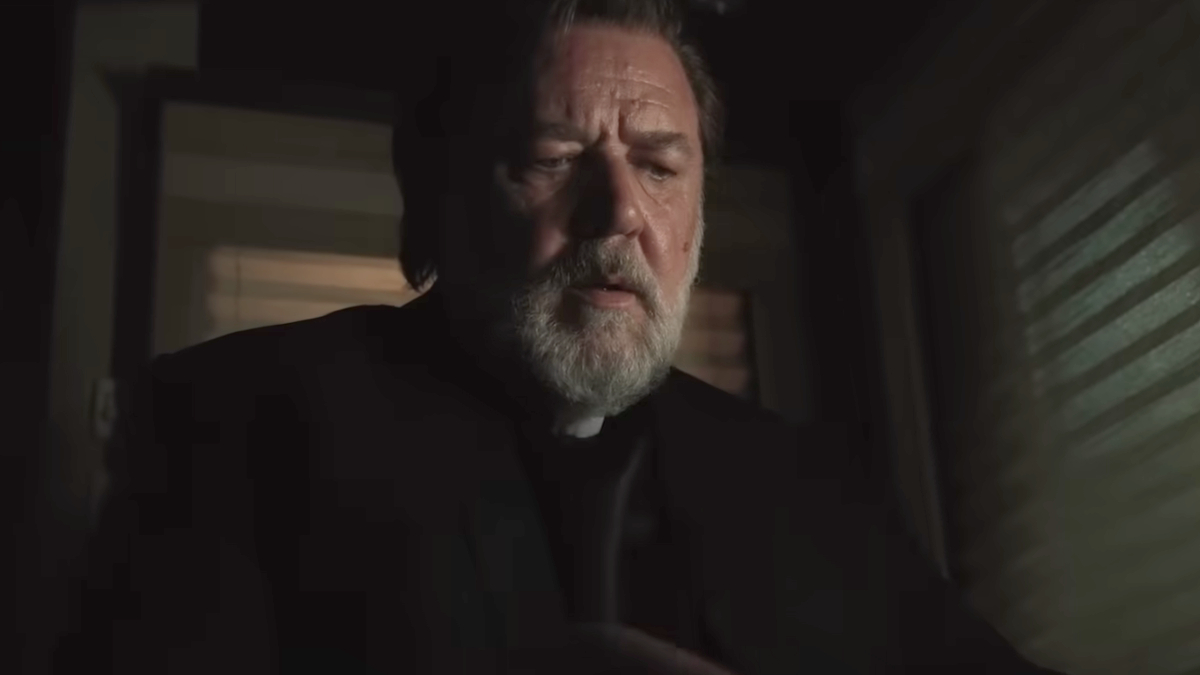Psychological thrillers are ubiquitous right now, so it’s always encouraging to see one that attempts to do more with its narrative than tell the simple story of a man coming apart at the seams. Such is Buster’s Mal Heart, the sophomore effort from writer/director Sarah Adina Smith, an imperfect film that nonetheless stretches itself to do more with a genre that has threatened to fall into cliche.
Rami Malek is Buster, a roving mountain man in the wilds of Montana, living off of the land in the summer and moving into isolated vacation homes in the winter. Buster occupies his time by rearranging pictures, defecating in cooking pots, and phoning up local radio shows to rant about the coming of the “second inversion,” in which all of human civilization will be reset. We begin to learn what has brought Buster to this pass as the film flashes back to when Buster was Jonah, a family man working the night shift as a concierge at a local Montana hotel.
Married to Marty (Kate Lyn Sheil), with a small daughter (Teresa Yenque), Jonah lives in an upside-down world. His job forces him to sleep during the day and stay awake at night, during which he spends long hours watching conspiracy theorists on TV and cleaning up the empty hotel. One night, a mysterious man (DJ Qualls) arrives at the hotel, asking for a room for the night. During a series of late-night conversations, the man claims to be the “prophet of the second inversion,” an apocalyptic shift in the paradigm that will occur at the turn of the Millennium when Y2K hits and world’s systems will fail. As Jonah falls deeper into the man’s rhetoric, his world begins to crumble, threatening his marriage, his faith, and his sanity.
As Buster’s Mal Heart moves between the past (or is it the future?) and Buster’s life in the mountains, it also takes us to a dream (or a vision, or possibly an alternate reality) in which Buster is lost at sea, alone in a rowboat. The constant return to the boat binds the other two pieces of the film together, though how and why isn’t clear until nearly the end.
Buster’s Mal Heart is a bit of a puzzle box of imagery, sound, and quasi-religious and scientific thematics, all poured into a standard psychological thriller mold. The film trades on the apocalyptic theories that surrounded Y2K as well as good old-fashioned conspiracy concepts – an interesting throwback, given that Y2K was both taken seriously and treated as something of a joke at the time, and thus giving the audience a degree of distance from Buster’s paranoia. The film’s technique of complex intercutting past, present, and future at first grates as the audience works to figure out what’s going on, but the story eventually falls into a rhythm that plays with thriller tropes without entirely rejecting them.
Much of the movie’s success depends on Rami Malek, who turns in a haunting performance as Jonah/Buster, wide-eyed and increasingly exhausted, desperate to do right by his family even as he begins to suspect that the world has been designed to trap him. He’s a likable character, if difficult to connect to, and the film spends much of its runtime forcing the audience to experience and understand the world through his dark-circled eyes. It’s difficult not to hope that things will turn out all right for him, even if it’s not always clear what form that will take. Malek’s haunted, slightly gaunt face is perfect for a man who’s sleep-deprived and living in a twisted and confusing world not entirely of his own making.
The quasi-spiritual nature of Buster’s experience and belief structure – steeped in a combination of religious apocalypse and scientific theories – is where the film will make or break itself on its own ambitions. Unfortunately, the religious aspects are never fully elucidated, while the scientific ones remains so outlandish and obscure that they’re difficult to even follow. Religious references attempt to ground the film in some theological narrative of destruction and salvation – the story of Jonah and the whale figures largely in the film, as do a few Christ references – but at last count come off as superficial, their meaning obscure without depth. The film fails to draw its threads together into something coherent, instead introducing concepts and methodology that, while interesting notions in themselves, don’t seem to fit with the standard psychological thriller aspect that the film continuously falls back on.
Despite its undoubted ambition and that excellent central performance, Buster’s Mal Heart slips into the traps that so often face thrillers of its type. It sets itself up brilliantly and then settles back on relatively standard tropes and twists that, while not entirely predictable, fail to impress. Genre confusion need not condemn a film, but Buster’s Mal Heart is trying to be, and to do, too many things at once. The result is that certain events are so obscure in meaning as to be incoherent, and reveals are tiresome rather than surprising. The complexities that it introduces it eventually shies away from, resulting in a payoff that is unsatisfying, if not downright confusing.
Yet, there’s a lot to like in Buster’s Mal Heart, not least its desire to do something different with the psychological thriller. There’s so much that’s good here, even if it will ultimately leave the viewer thinking that poor Buster just needed a good night’s sleep.






